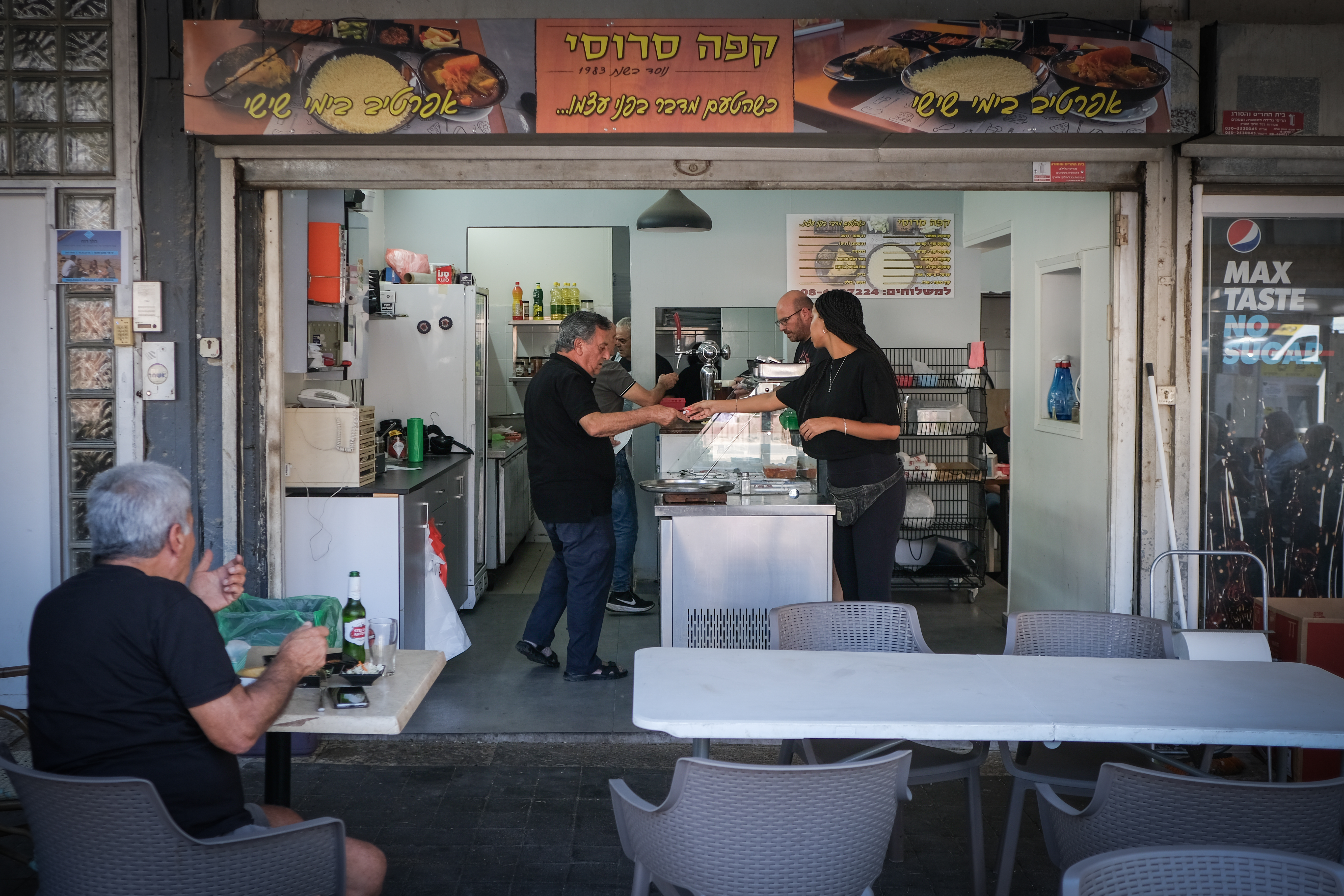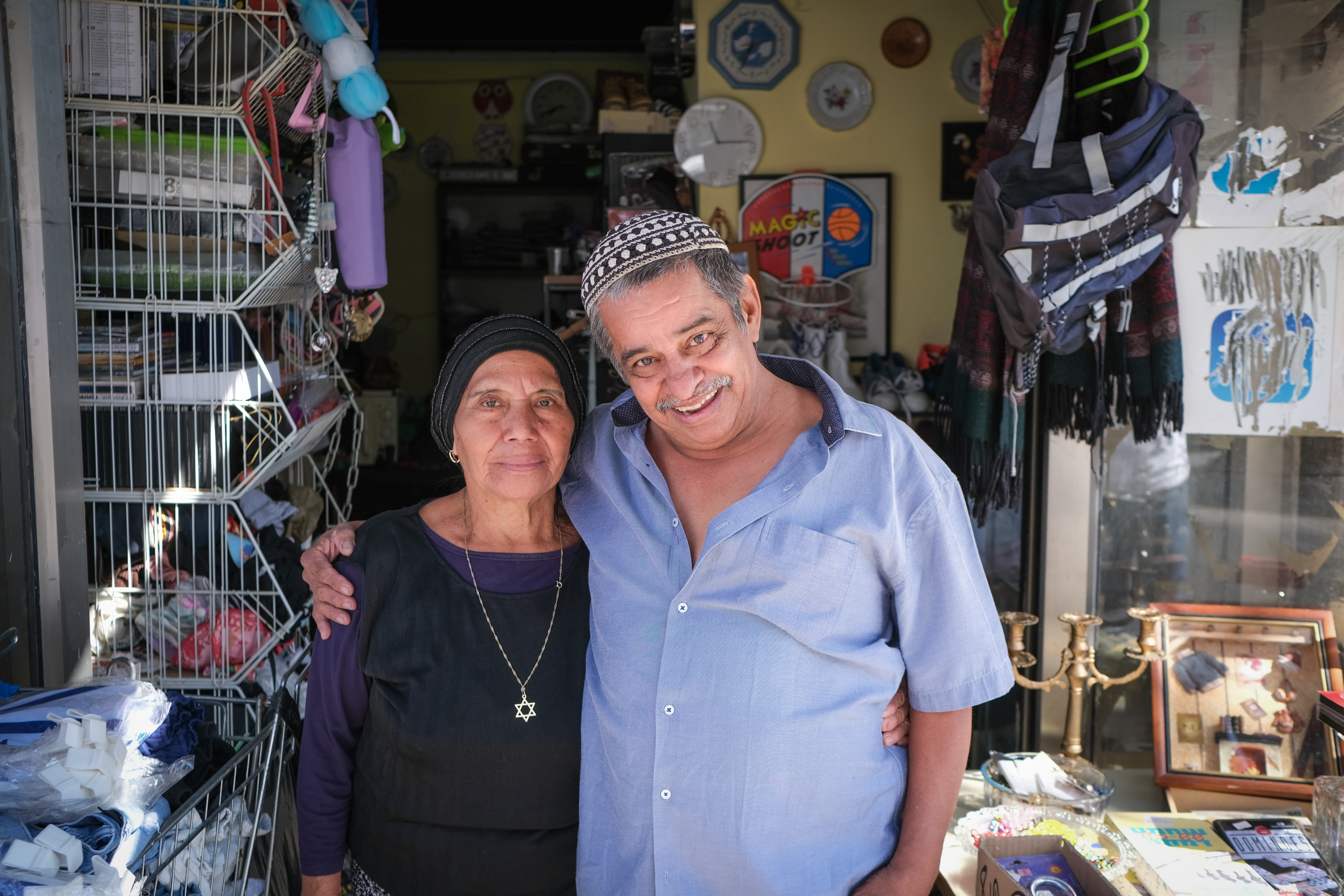
Beersheba, Israel – Nestled on the northern edges of the Negev desert in southern Israel lies a city at odds with its dusty, arid environment.
Beersheba, with more than 200,000 residents, boasts an eclectic mix of architecture. It is home to a historic Ottoman old city, a chaotic collection of monolithic concrete structures built during the heyday of Israel’s experimentation with neo-brutalist styles and a shiny business centre surrounded by a dizzying network of more than 250 roundabouts.
Hebrew, Arabic, Tigrinya, Russian, Spanish and many more languages can be heard on the city’s streets.
The city has been growing fast in recent years and is part of an ambitious plan by the Israeli government to become a southern hub for the technology and defence industries.
However, since October 7, when the armed wing of the Palestinian group Hamas broke out of the Gaza Strip, launching a surprise attack on southern Israel, life in the city ground to a halt.
Israel has responded with a relentless, deadly aerial bombardment of Gaza and severed essential supplies from reaching the 2.3 million people who live inside the besieged enclave.
Hamas has responded by firing missiles at Israeli cities but about 90 percent of them are struck down by Israel’s Iron Dome defence system.

A deep-seated hatred of Hamas
Some shops and local businesses are beginning to reopen but people remain extremely cautious.
There is a sense of deep suspicion among locals, with many preferring not to give their last name or be photographed.
Simon, a cafe owner in his 30s with Tunisian and Polish heritage, says the attack rattled the local community because it showed they had become complacent to the risk posed by Hamas.
“We know Hamas”, he explained, saying they had long felt a threat from the group located in Gaza, roughly 40km (25 miles) to the west.
“We have a good army, we have a strong army”, he said firmly, “but we got caught by surprise”.
Despite an unwavering belief in the strength of the Israeli military, he is cautious about predicting when the war will end because there remain about 200 Israeli hostages in Gaza.
He says schools have closed, leaving his three children at home, but with a lack of adequate bomb shelters, his family have moved in with his in-laws.
Close by, a pair of visibly stressed mothers fill an SUV with heavy suitcases. Both their husbands are serving in the army and they feel unsafe in the area with their children, so they are evacuating to the north of the country.

Irene, a gregarious bar manager who moved to Beersheba from Odesa in Ukraine, says she will not leave her adopted city, although she fears for her daughter who was a university student but is now serving in the army.
Like many locals, she shares a deep-seated resentment towards Hamas, a group she describes as “beyond animals”.
Israeli officials say the group’s attack, Operation Al-Aqsa Flood, killed more than 1,400 people, mostly civilians, and wounded about 3,500 others. Many people in Beersheba personally knew people affected by the attacks.
Sirens wail across Beersheba about twice a day; some locals take cover in shelters but many continue to go about their business.
Hamsa, a young Eritrean man who moved to Israel five years ago, laughs off the suggestion he could be scared by the rockets. “Where I have come from, this is nothing”, he said.
Mais Jooma, an 18-year-old restaurant worker, admits she has been scared by recent events but is also concerned about how locals can get used to an “ongoing war” with “no end in sight”.
She estimates that the number of customers has fallen by 30 percent since October 7. Many locals have flown to other countries.
The streets are all but deserted in a ramshackle residential area popular with university students on the city’s outskirts.
Locals say fewer people are on the streets than when there were lockdowns during COVID-19.
Three locals, Yoni, Daphne and Maya, who are out walking a small dog, describe the whole city as still reeling from the events of October 7.
Yoni, in his twenties, squints in the bright afternoon sun. He paints a picture of complete confusion on October 7 as he and his friends and family tried to gather information on the attack via Telegram channels. It is an experience he describes as unprecedented and something he and many of the locals have yet to fully “digest”.
Multi-culturalism in Beersheba
Residents of Beersheba appear proud of the multicultural makeup of the city.
Simon says he has many friends from different places, including Eritreans, one of the city’s largest immigrant groups, and Moroccans.
Santiago Cardenas, a shopkeeper from Peru, enthusiastically explains in Spanish and broken English that he loves the city he moved to 20 years ago.

Israeli flags stand draped across stalls filled with bric-a-brac. “People are here from all over the world”, he said, motioning the globe with his hands.
However, Mais suggests the reality of Beersheba is more complex behind the veneer of multicultural integration. “I grew up not having many friends”, she said matter-of-factly.
“And that’s mainly because I am Arab”.







